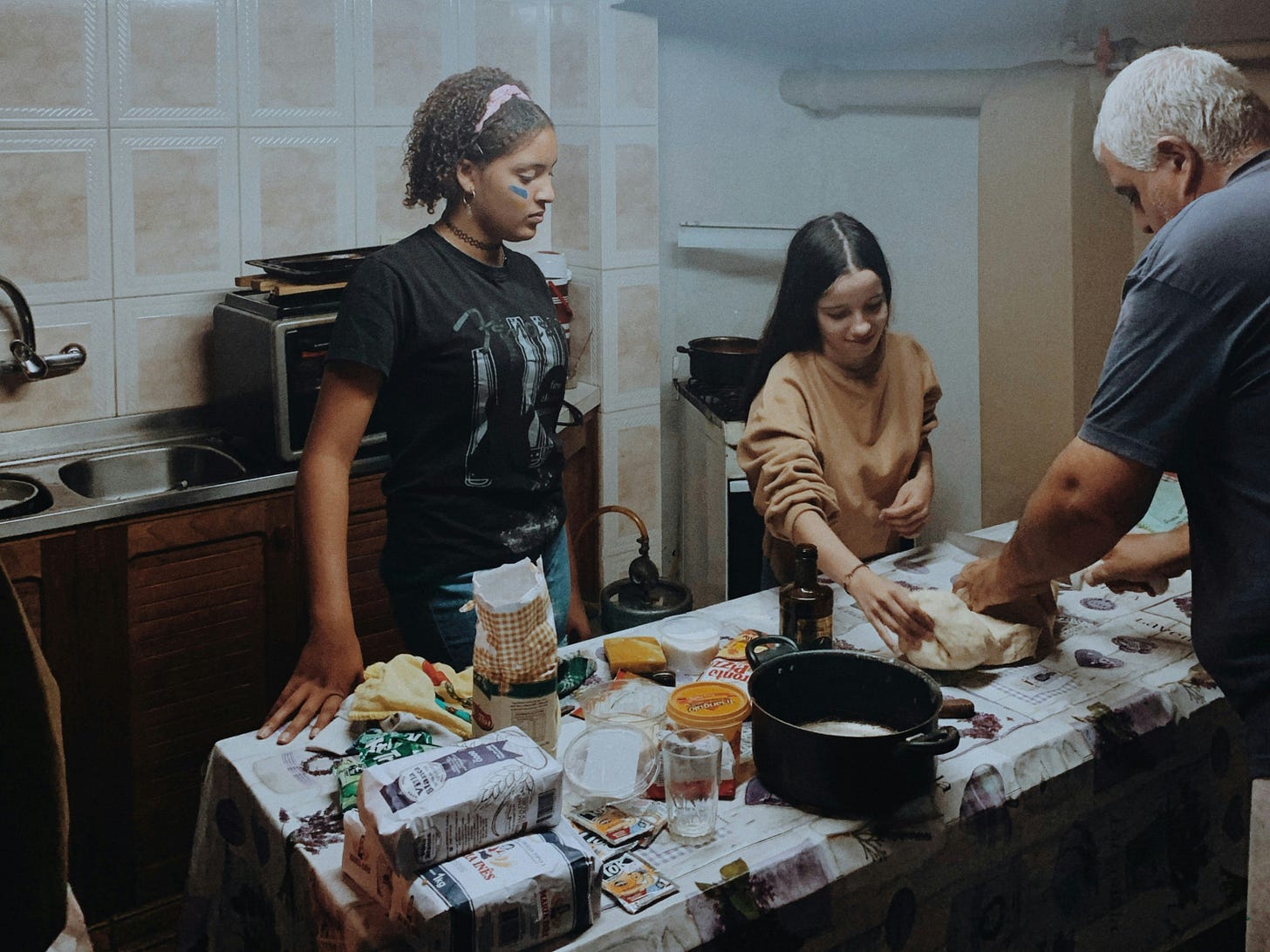Photo by Andres Perez on Unsplash
In my recent Substack post about AI, young people, and connection, I wrote about some of the problems with AI companions. An AI companion is an artificial intelligence that simulates human conversation to respond to people’s interests, needs, and queries. Examples include companies like character.ai and Replika, as well as Meta or Snap, which build AI into their core products.
Young people are already using this type of technology for emotional support. Aspects of that might be ok—there may be benefits for access to and willingness to engage with mental health support, for example. It might also be very problematic, especially if kids decide that AI friendship is easier than the messiness and unpredictability of real relationships, and use it to replace connections they might otherwise build with humans, be they other kids, coaches, teachers, or family members.
As parents, we need to be having conversations with our kids about why human relationships matter; what the tech can and can’t do; and where they (the kids) are right now in terms of their thinking about the issue. Here are four discussion prompts, designed as ways to start those conversations with your teens.
1. What makes a conversation feel nourishing to you?
Follow up: Do you think AI can replicate that feeling? Why or why not?
This encourages young people to explore what they value in authentic communication, helping them reflect on the emotional texture of human interaction versus AI responses.
2. What about friendship is fundamentally human?
Follow up: If you could design the perfect AI friend, what would it do—and what would you not want it to do?
This opens up discussion about benefits and boundaries, encouraging a healthy comparison between digital tools and human relationships.
3. When do you feel most seen or understood—in person, online, or by AI?
Follow up: Why? How do those experiences feel different from each other?
This helps kids see how various forms of interaction affect their emotional well-being and identity.
4. How do you think having AI ‘companions’ might change the way people build friendships or romantic relationships?
Follow-up: What do you hope won’t change—and what might be worth rethinking?
The idea here is to encourage thinking about culture and connection.
Why these conversations matter
Hopefully, talking to your teens like this will both help them see the value of relationships, and at the same time show them your interest in ways that will spark greater curiosity, and more agency. “By engaging in meaningful discussions about kids’ interests, experiences, and challenges, you create space for them to explore their thoughts and feelings and model what curiosity can unlock,” Rebecca and I write in The Disengaged Teen.
In my longer piece, I quote Isabelle Hau, executive director of the Stanford Accelerator for Learning: “The presence of relationships and the number of strong relationships for high school students is one of the strongest predictions of motivation, engagement and persistence,” Hau says. And yet, “We continue to treat relationships as invisible in our systems of learning.” If we think kids can learn better from machines, we risk eroding over-indexing on tech and under-indexing on human relationships. The greatest challenge we face may not be managing tech but protecting what’s human: our deep reliance on each other.
These talks may be awkward. So are conversations about sex and porn and incel culture. Do your best. Be curious and not critical. And if it goes poorly, try again later.





Thanks Katy!
Thank you for writing about this. Social and emotional learning is personal, but it is also about learning group dynamics. It is complicated and challenging learning, and can’t be replaced by AI.